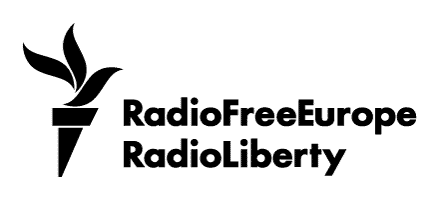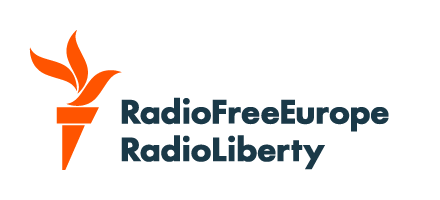Maryann DeLeo: Sort of a miracle. It's amazing. You know, this is not an easy film [to watch] because there are so many children who are sick and who are really hard to look at. I never thought anybody would want to see it. And the fact that people cared, and the fact that the Americans, the Academy, voted for it, I find it just a beautiful miracle. I am so happy."
DeLeo was then asked how the idea came to her to make the film in the first place.
DeLeo: Looking back, I really think there was something about destiny in there. A friend of mine visited the United Nations and saw an exhibition that Adi Roche [the executive director of the Chornobyl Children's Project] and the Chornobyl Children's Project organized. My friend was so angry and upset at what he saw [because he believed] that everyone had forgotten about Chernobyl. That he did not know that this was happening. He kind of sent me to look at the exhibits, and then someone else told me that, oh, you should make a film. And then the door started to open. I really feel like it was not me. It was something guiding me. And that's how it happened.
DeLeo was asked if she faced any specific problems working in a restrictive country such as Belarus. Did she experience any difficulties when the filming started?
DeLeo: I was fortunate, because Adi Roche has been going to Belarus for maybe 12 or 13 years. She has good relationships with the people there and everyone knows that she is there to help the people. So we had an easy time, and all the people in hospitals and, I think, everybody felt that we were there for a good reason.
DeLeo was asked what she thought of sanitary conditions in Belarus and the plight of the children.
DeLeo: It is pretty shocking, and I think the Belarusians are kind of overwhelmed. There are so many institutions and so many kids, and they are just lacking in so many things. In one of the hospitals there was just one nurse on duty for the whole hospital, and a lot of kids are not in good situations, which is not enough care. I mean the people there are doing the best they can, but they need money, they need help, they need a lot of things.
DeLeo was asked if making such a difficult film had changed her as a person.
DeLeo: Yes, [I am] definitely changed. It was the hardest film I've ever made. I've been doing this for 20 years, and I really struggled with this film. I did want to show hope in the midst of all the difficulties. I think, finally, I achieved that with the heart surgeon in the film who does operate on some of the kids, and they manage to survive, and so I think that's the hope that we can all help each other. But it's very hard to look at kids who are sick. You have to have a reason, but I think the reason is that we need to know that radiation is still affecting millions of people since that accident.
She says she sometimes had difficulty hiding her emotions in front of the children.
DeLeo: I tried to focus on whatever good moments there were. Really, they didn't want anything from me, they just wanted somebody to be there with them, to see them blow bubbles, and they were happy. So, I think, maybe, I didn't pretend but I held back some of my feelings, and waited till I was alone in my room, before I really wept for them and their situation.
During the filming of the movie, DeLeo also received a small amount of radiation poisoning.
DeLeo: [It] was a small dose, and I was only in Belarus for a short time. And I think I am okay now. There are people living with that every day. Our translator, she has some Cesium-137 [radioactive element] and she says: 'Look, there is not much I can do, I live here, I can't go anywhere, and I just have to do the best I can.'
DeLeo was then asked how the idea came to her to make the film in the first place.
"I tried to focus on whatever good moments there were."
DeLeo was asked if she faced any specific problems working in a restrictive country such as Belarus. Did she experience any difficulties when the filming started?
DeLeo: I was fortunate, because Adi Roche has been going to Belarus for maybe 12 or 13 years. She has good relationships with the people there and everyone knows that she is there to help the people. So we had an easy time, and all the people in hospitals and, I think, everybody felt that we were there for a good reason.
DeLeo was asked what she thought of sanitary conditions in Belarus and the plight of the children.
DeLeo: It is pretty shocking, and I think the Belarusians are kind of overwhelmed. There are so many institutions and so many kids, and they are just lacking in so many things. In one of the hospitals there was just one nurse on duty for the whole hospital, and a lot of kids are not in good situations, which is not enough care. I mean the people there are doing the best they can, but they need money, they need help, they need a lot of things.
DeLeo was asked if making such a difficult film had changed her as a person.
DeLeo: Yes, [I am] definitely changed. It was the hardest film I've ever made. I've been doing this for 20 years, and I really struggled with this film. I did want to show hope in the midst of all the difficulties. I think, finally, I achieved that with the heart surgeon in the film who does operate on some of the kids, and they manage to survive, and so I think that's the hope that we can all help each other. But it's very hard to look at kids who are sick. You have to have a reason, but I think the reason is that we need to know that radiation is still affecting millions of people since that accident.
She says she sometimes had difficulty hiding her emotions in front of the children.
DeLeo: I tried to focus on whatever good moments there were. Really, they didn't want anything from me, they just wanted somebody to be there with them, to see them blow bubbles, and they were happy. So, I think, maybe, I didn't pretend but I held back some of my feelings, and waited till I was alone in my room, before I really wept for them and their situation.
During the filming of the movie, DeLeo also received a small amount of radiation poisoning.
DeLeo: [It] was a small dose, and I was only in Belarus for a short time. And I think I am okay now. There are people living with that every day. Our translator, she has some Cesium-137 [radioactive element] and she says: 'Look, there is not much I can do, I live here, I can't go anywhere, and I just have to do the best I can.'



